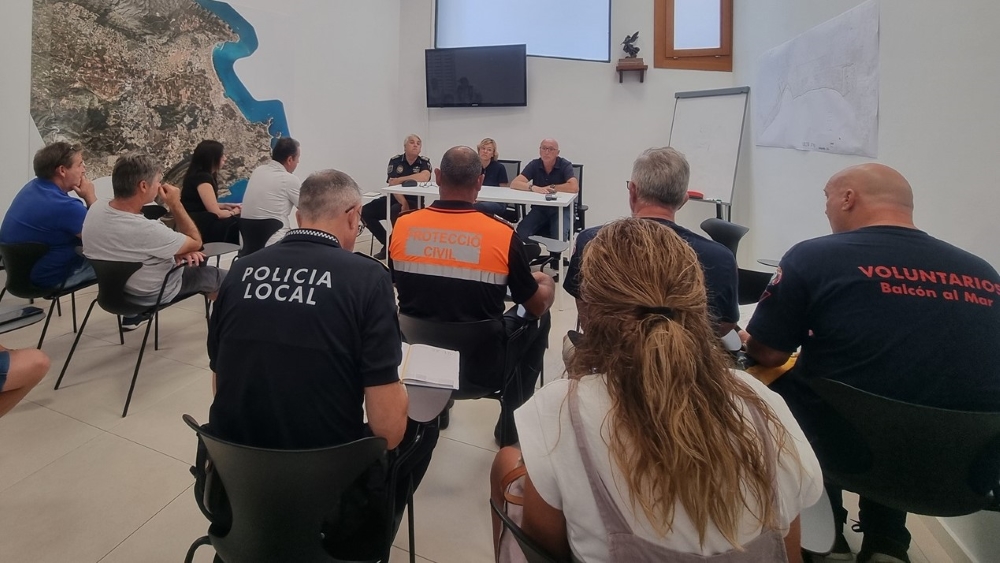CECOPAL meets due to warnings for storms issued by Emergency Coordination Centre
The meeting was called in response to risk alerts issued by AEMET for heavy rainfall and thunderstorms.

The Local Emergency Operation Coordination Centre (CECOPAL) has met after a special warning on widespread storms across the Comunidad Valenciana has been issued by the Generalitat Valenciana’s Emergency Coordination Centre due to the presence of a ‘DANA’ phenomenon during Wednesday.
The warning was issued based on two risk alerts issued by the Spanish State Meteorological Agency (AEMET) – an orange risk for thunderstorms and the possibility of hail, and a yellow risk for heavy rainfall – both of which are valid for the rest of Wednesday.
The consequence of the presence of a ‘DANA’ – an Isolated Depression at High Levels – is that there is the potential for locally strong or very strong rainfall which could be accompanied by thunderstorms, hail and very strong gusts of wind.
In response, mayor Rosa Cardona called a meeting of CECOPAL, attended by representatives of the Policía Local, Protección Civil, Voluntarios Balcón al Mar, Cruz Roja Xàbia, and AMJASA as well as local meteorological expert Toni Bolufer and councillor Mavi Pérez (Education), Fátima Jarjor (Social Services), Juanjo García (Services) and Juan Ortolá (Public Safety). The meeting coordinated surveillance work, the cleaning of drains, and preparations for situations that may occur at a time when Xàbia has a high occupancy. The Cruz Roja confirmed that all beaches will be flying a yellow cautionary flag during the day.
Advice to Residents and Visitors in Xàbia
- Keep informed of the current risk level for the municipality and if the place where you live or work is located in a flood zone.
- Don’t go out on the water in small boats or go swimming, due to the risk of lightning.
- Avoid walking in open fields and where there is no alternative, don’t take shelter under trees, especially those who are isolated, and stay away from large rocks.
- When an alert is issued, try to stay informed about the evolution of the situation. Tune in to radio and television stations that give news about it, as well as other local media.
- Remove vehicles from areas that may be flooded and stay away from riverbanks or ravines. Don’t hang about on bridges.
- Use the vehicle for essential trips, consult the traffic information service of the General Directorate of Traffic and use the main roads.







